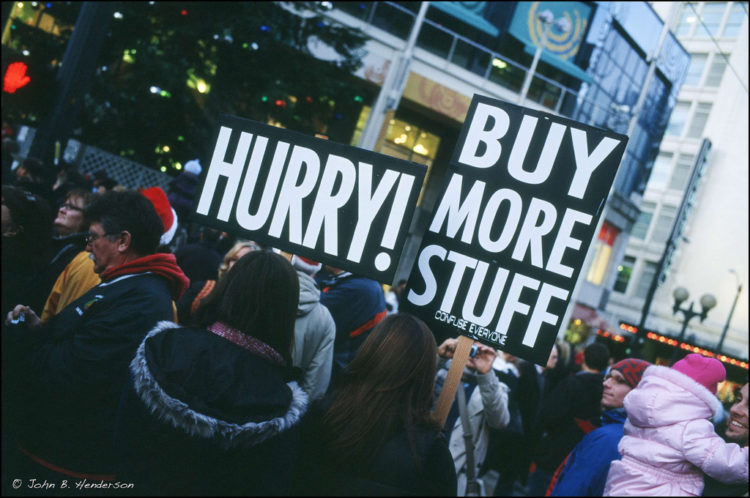By the end of the 40-hour work week, we’re over-worked and exhausted. We barely have any time to ourselves, save the meager few hours in the evenings. Most of us lose our identities in the process, forgetting our hobbies, interests, and simple pleasures in life. We’re in such a rush to fit everything into our schedules, working towards the next big purchase, that we don’t stop to enjoy our lives. And yet we keep working long hours, never thinking to question it. Meanwhile, corporations get richer and debt skyrockets.
Why do we allow this to happen?
Inflation
Inflation is what happens when the value of a dollar decreases. When the US government needs money to wage whatever kind of war, they ask the Federal Reserve for a loan. From here, the Fed buys bonds (essentially, IOU’s) from the government in whatever amount the government requested. The government then prints out treasury bonds, while the Fed prints money. The two trade, and the government deposits this money into a different bank, which charges fees and interest. And there you have it. The creation of money out of nothing.
This process decreases the worth of a dollar, causing inflation and driving the country more and more into debt.
Debt

Because the amount of debt continues to grow, it gives the impression that we will never get out of it. Because more debt means more money circulation, even if we were able to pay off the entirety of our loans, this means there wouldn’t be a single dollar in circulation. And don’t forget about needing to pay off the interest, as well. After all, the cost of living continues to increase along with the debt. It’s this kind of orchestration that causes the majority of us to panic and automatically accept the 40-hour work week without question.
But is the 40 hour-work week all that efficient? Studies show that out of an 8-hour day, workers only accomplish less than 3 hours of actual work. Still, somehow corporate profits are flying through the roof as wages are declining. According to the Bureau of Labor Statistics, in the 3rd quarter this year, productivity increased 2.3 percent, while hourly pay only increased by 1.3 percent. Never in the past 85 years has corporate profiting been so high. But do we ever stop to think why we aren’t being paid more and working less?
Consumerism

Consumerism is defined by dictionary.com as “the fact or practice of an increasing consumption of goods.” Meaning, consumerism is generally accepted as a positive thing. And in the past, when the economy was doing better, it truly was. However, with the amount of debt on the rise, in addition to inflation, consumerism has taken a negative toll on society. The more money we spend, the more we feed the corporations and banks who profit off our economic slavery. It’s a deadly cycle.
For hundreds of years, corporations have pushed a “buy, buy, buy” mentality. They’ve taken advantage of people by using consumerism as a profit-making tool, delving into our subconscious desires and exploiting them. They offer amazing deals like “buy now, pay later” or “charge it”! Which essentially means, “Spend money you don’t have!” These days, Americans don’t even blink as they fork over their credit cards, financing everything with empty pockets. And don’t forget the Keeping up with the Joneses mentality, or needing the newest, biggest, fastest, and greatest new products. Corporations thrive off of this, and the 40-hour work week only solidifies it.
Because we’re at work for the majority of the day, we spend our limited evenings and days off watching television or other forms of media and entertainment, many times because we simply don’t have time for other activities we’d better enjoy. And on top of this, most of us are still struggling to make ends meet. We buy frivolous things for fleeting moments of happiness before we grow bored and move on. We hide our insecurities, psychological needs, and issues with material items – things that are advertised to us constantly within the few hours a night we get to ourselves. We pay for convenience because we can’t afford not to. And the corporations keep getting richer.
In the end, however, the only people who can save us are ourselves.
Sources:
Collective Evolution
Investopedia
Inc.com
Dictionary.com
Get Rich Slowly
APA
Save
Save


